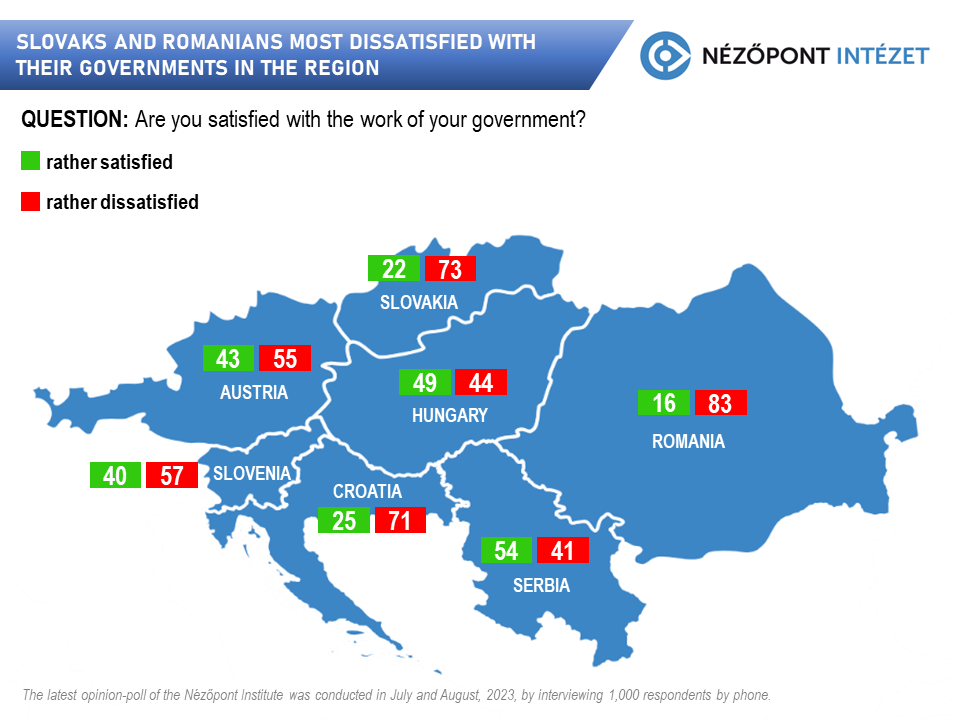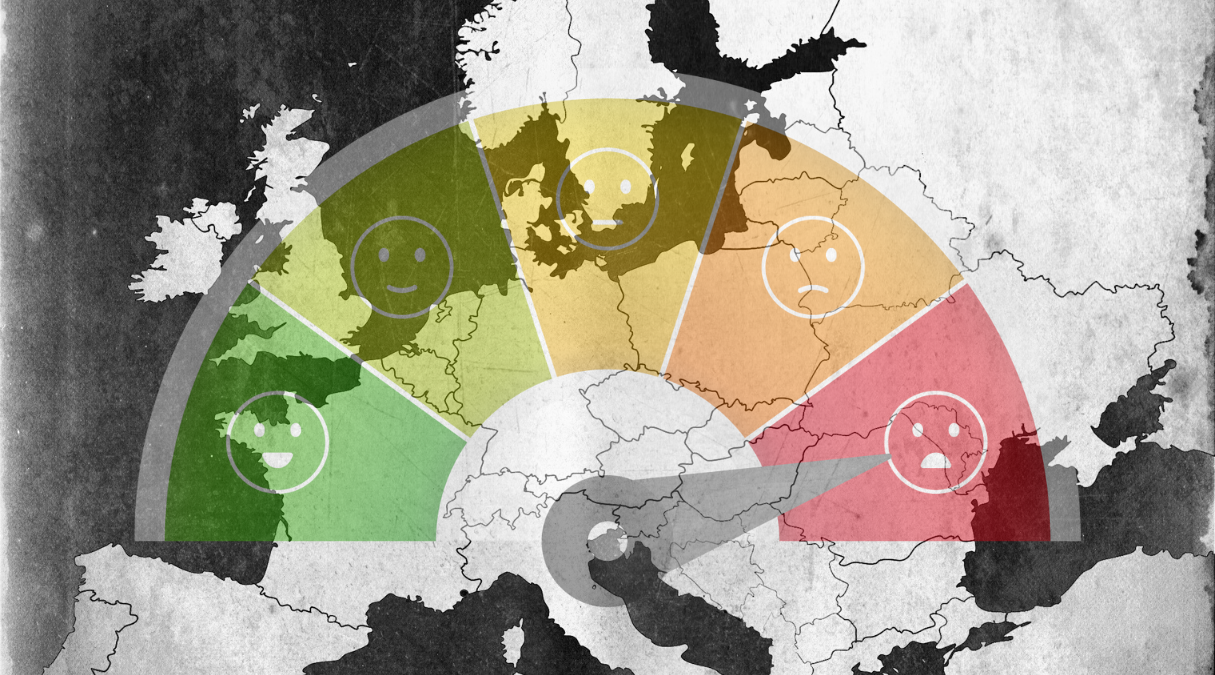According to a recent poll conducted by the Nézőpont Institute in Hungary and its neighbouring countries, people in Slovakia (73 percent) and Romania (83 percent) are the most dissatisfied with the work of their own government, while in Serbia and Hungary, citizens rate the performance of the country’s leadership the highest.
Even in peacetime, but especially in times of international conflicts, domestic political stability and trust in government are values that not all countries can maintain. Today, the protracted war between Russia and Ukraine poses constant challenges to almost the entire world, but the countries of the Central European region have to face even more considerable difficulties. Due to the energy crisis, the wartime inflation and the security challenges posed by the armed conflict, it has become even more important that the current government is stable and its actions are accepted. Having a look around in the neighbouring countries, a diverse picture emerges in terms of public opinion.

According to a survey conducted by the Nézőpont Institute in the summer, Romanians and Slovaks are the most dissatisfied with the performance of their governments in the region. In Slovakia, which is in the midst of a government crisis and thus facing early elections, there is a mood of government change, with 7 out of 10 people expressing dissatisfaction with the performance of their country’s leadership and only 22 percent saying that they are satisfied. What is at stake in the September 30 elections, apart from a possible change of government, is whether the party of the Hungarian community living in Slovakia will be able to enter into the parliament and become a balance of power factor, i.e. a significant political force in Slovakia.
In Romania, the situation is even worse. Only 16 percent of the respondents were positive about the government’s activities, while 83 percent were rather dissatisfied. However, it is a fact that in a semi-presidential system, where the president plays an active role in the executive power, the government is not traditionally considered to be the most stable institution.
Negative trends can also be observed in three other neighbouring countries. In Croatia, 71 percent of the citizens are dissatisfied with their government, while in Slovenia, this proportion is 57 percent. Even in Austria, 55 percent said that they are not satisfied with the country’s leadership.
Only two countries, Serbia and Hungary, are going against the negative trends in the region, as both countries have a majority of those who are positive about the government’s performance. In our southern neighbour, there is an absolute majority (54 percent compared to 41 percent) of people who are satisfied with the government, while in Hungary there is a relative majority (49 percent compared to 44 percent). Thus, these are the only two countries in the region where people have a positive opinion of their elected leaders.
Methodology
The latest opinion-poll of the Nézőpont Institute was conducted in July and August, 2023, by interviewing 1,000 respondents by phone. For all surveys, the sample is representative of the adult population (18 years and older) by gender, age, region, type of settlement and education. In case of a sample size of 1000 respondents and a confidence level of 95 percent, the sampling error is ± 3.16 percent. Respondent base = total adult population.
